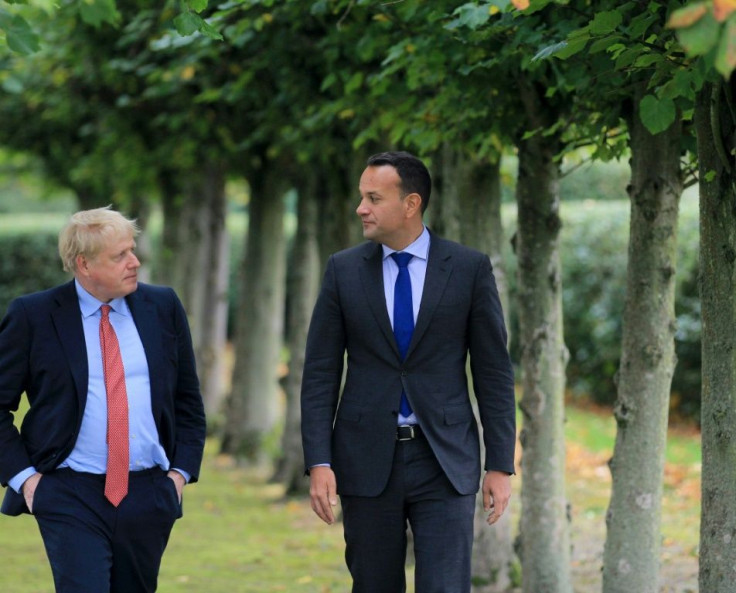Countdown To Brexit: 'Pathway To Deal' Possible, Boris Johnson, Leo Varadkar Say

British Prime Minister Boris Johnson and Irish Taoiseach Leo Varadkar said Thursday they see a “pathway to a possible deal” following three hours of private talks ahead of the Oct. 31 deadline for the United Kingdom to leave the European Union.
Johnson hosted Varadkar at a country house in northwest England after which they issued a joint statement expressing optimism ahead of next week’s EU summit. The other 26 members of the European Council have said they want a deal in writing before Tuesday’s meeting.
The news sent both the pound and euro higher. The pound gained 2 1/2 cents to $1.2455 while the euro added 0.32 cents to $1.1002.
The main sticking point to a Brexit agreement is how to handle the border between the Irish Republic and Northern Ireland. Johnson had rejected the so-called backstop, which essentially would have left Belfast in the EU customs zone.
The Guardian reported Downing Street declined to comment on whether Johnson had changed his position.
“Both continue to believe that a deal is in everybody’s interest. They agreed that they could see a pathway to a possible deal,” the joint statement said.
“Their discussion concentrated on the challenges of customs and consent. They also discussed the potential to strengthen bilateral relations, including on Northern Ireland.”
Varadkar told reporters he thinks agreement is possible, and he is convinced both Dublin and London want “an agreement that’s in the interests of Ireland and the U.K., and the EU as a whole.” Varadkar acknowledged there still are issues that need resolution, including a longterm solution for Northern Ireland.
“We had a good discussion looking forward to how relationships might look after Brexit, how we can strengthen co-operation north and south economically and politically, and also between Britain and Ireland,” he said.
EU chief Brexit negotiator Michel Barnier was expected to decide Friday if the two-way talks made enough progress to pave the way for a breakthrough. He is to meet Friday with U.K. Brexit Secretary Stephen Barclay.
A senior EU diplomat told the Financial Times the talks were substantially different from the previous offer made by Johnson, which essentially would have given the Democratic Unionist party veto power over any agreement every four years.
German Chancellor Angela Merkel told a trade union meeting in Nuremberg the U.K. should continue paying pensions and social insurance after Brexit and that visa-free travel should continue.
“We want to minimize the negative effects in both countries, even if there is a disorderly exit,” Merkel told a meeting of the IG Metall union.
© Copyright IBTimes 2025. All rights reserved.






















